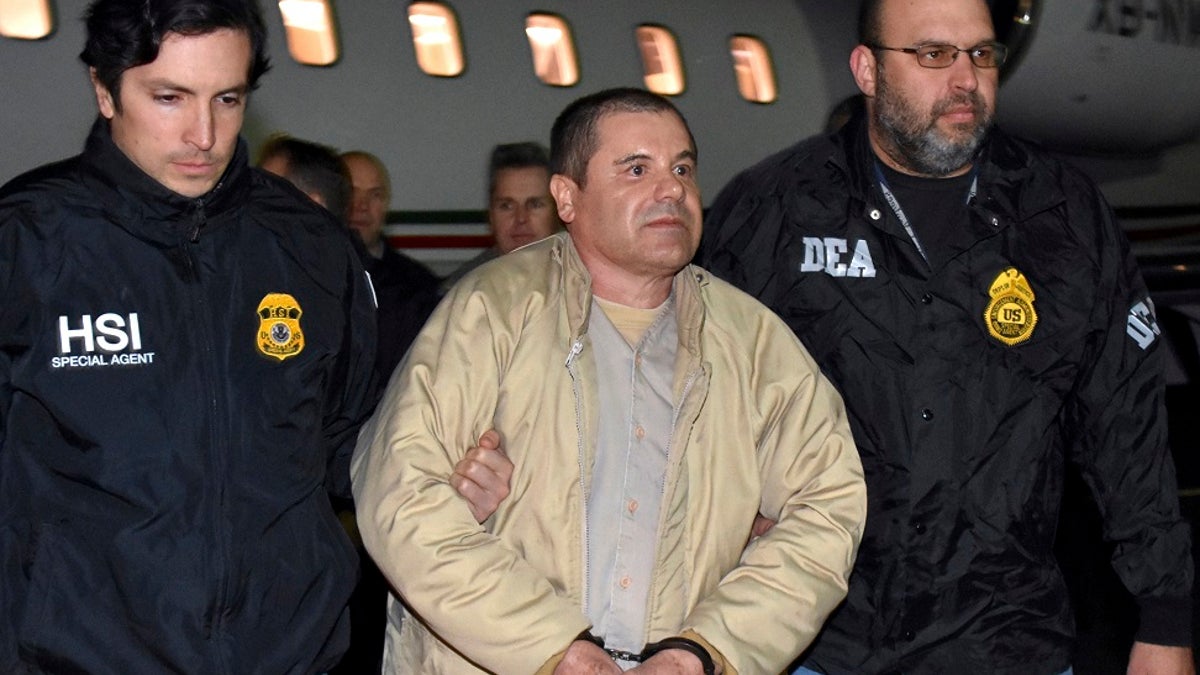White House defends focus on drug cartels amid COVID-19 pandemic
Acting CBP Commissioner Mark Morgan tells 'Fox & Friends' that the White House can focus on more than one threat at a time.
Lawmakers in Mexico on Tuesday approved a controversial reform to the National Security Law to "regulate and monitor all activities of foreign agents," which critics say will dramatically set back U.S. and Mexico relations and hamper efforts in the battle against drug cartels.
According to local news outlet El Universal, the new mandate – which passed with 329 votes in favor, 40 abstentions and 98 against – has now been sent to the Federal Executive. It remains unclear when it will be implemented.
"The bill in Mexico will put the U.S. law enforcement back 40 years as the crisis gets worse and record numbers of people are dying," Derek Maltz, a former special agent in charge of the U.S. Drug Enforcement Administration (DEA) Special Operations Division, told Fox News. "The drug crisis is killing Americans at unprecedented levels and any Mexican bill that limits the activities of DEA and U.S. law enforcement agency is unacceptable and will lead to more death and destruction in the U.S. and in Mexico."
CHINESE 'CARTELS' QUIETLY OPERATING IN MEXICO, AIDING US DRUG CRISIS
While the reform doesn't specifically target the United States, the law – proposed by President Andres Manuel Lopez Obrador – establishes a blueprint in which embassies and foreign missions authorized in the country must notify the Mexican government of movements and meetings, and "a representative of the Ministry of Foreign Relations must be present at these meetings."
This means that the DEA will be forced to report the content of every contact, and agents could potentially lose diplomatic immunity if charged with a crime of failing to comply.

In this Oct. 16, 2020, court artist sketch, former Mexican defense secretary Gen. Salvador Cienfuegos Zepeda's appears in federal court in Los Angeles. The U.S. Justice Department is dropping its drug trafficking and money laundering against former Mexican defense secretary Gen. Salvador Cienfuegos, Attorney General William Barr said Tuesday, Nov. 17, 2020. (Bill Robles via AP)
As it stands, the DEA has 11 offices in Mexico, but it is not evident exactly how many agencies have a presence and the number of foreign agents working on the ground.
And many industry insiders fear the ripple effects will be devastating.
"This bill will compromise the relationships and the safety and security in Mexico and will put U.S. law enforcement and confidential sources at serious risk," Maltz continued. "The corruption in Mexico is rampant throughout the government and the bill will provide huge advantages to the transnational organized crime threats."
U.S. Attorney General William Barr also warned after the bill passed the Senate before successfully passing through the lower house on Tuesday that it "can only benefit the violent transnational criminal organizations and other criminals that we are jointly fighting."
Evan Ellis, a research professor of Latin American studies at the U.S. Army War College Strategic Studies Institute, said: "Regrettably, it will make it more difficult to coordinate with our Mexican partners, and probably more difficult to share intelligence data which is vital to our shared struggle against criminal groups which threaten security and public order in both of our countries."
CBP SEES 'ALARMING UPTICK' IN FENTANYL SEIZURES AT SOUTHERN BORDER
Wesley Tabor, a retired Assistant Special Agent in Charge Los Angeles Field Division of the DEA, concurred that – if finalized – this bill will continue to hurt Mexicans and Americans and breed further corruption and strife between the countries.
"No agent is going to go out on a limb and no Mexican will cover for an American," he said. "Cooperation will die on the vine and Mexico will continue to step further into a narco-state."

A woman carrying flowers walks past a forensic truck where technicians are searching for bodies in El Salto, outside the metropolitan area of Guadalajara, Jalisco state, Monday, Nov. 23, 2020. Mexican authorities have recovered 113 bodies and additional human remains from the site. (AP Photo/Refugio Ruiz)
The move comes just weeks after a cross-country row erupted over the arrest of former Mexican Defense Minister General Salvador Cienfuegos in Los Angeles on drug trafficking charges, with Obrador and his government vowing that they were not notified that the former official was under investigation by the DEA, and not tipped off in advance of his arrest.
After days of diplomatic in-fighting and threats to expel the DEA altogether, the U.S. government agreed to drop the charges and send Cienfuegos back over the border.
Subsequently, a leading figure in the opposition National Action Party – Damián Zepeda – deemed the legislation a "tantrum" over Cienfuegos's arrest.
But according to Ana Quintana, a senior policy analyst for Latin America at The Heritage Foundation, the real turning point came after the scope of the botched Obama-era DEA Fast and Furious drug-running operation came to light.
"You had a number of Mexican nationals killed because of this – and now (the bill) is a backdoor way for the Mexican government to exert itself and make a nationalistic statement. But this going to be a big problem if it is implemented," she cautioned. "You don't want to penalize and let the tensions escalate, but (the U.S.) cannot let this go."
For the past 12 years, Mexico City and Washington have intensified their partnership in a bid to stamp out the burgeoning narcotics trade, strengthening both law enforcement and prosecutorial capabilities.

Authorities escort Mexican drug lord Joaquin "El Chapo" Guzman, center, from a plane in Ronkonkoma, N.Y. Guzman admitted that women are his only addiction during a 2016 interview with a criminologist in Mexico, according to media reports. (U.S. law enforcement via AP, File)
However, Obrador – who came to office two years ago – has opted for a "hugs not bullets" strategy in combating the cartels, despite the unprecedented levels of homicides and systematic violence across the country.
The president arched eyebrows – and angered many – when he embraced Sinaloa cartel honcho Joaquín "El Chapo" Guzmán's mother earlier this year, less than six months after he demanded Mexican law enforcement release Ovidio Guzman, one of El Chapo's sons, following an unplanned firefight in the northern city of Culiacan – the capital of Mexico's Sinaloa state.
CLICK HERE TO GET THE FOX NEWS APP
And despite the condemnation from the U.S. concerning the new reform, Obrador has maintained that it re-asserts his country's sovereignty.
The U.S. government needs to push back and recognize the national security impact of this decision," Maltz added. "This would not only be a serious blow to dedicated U.S. law enforcement but to the American public."

